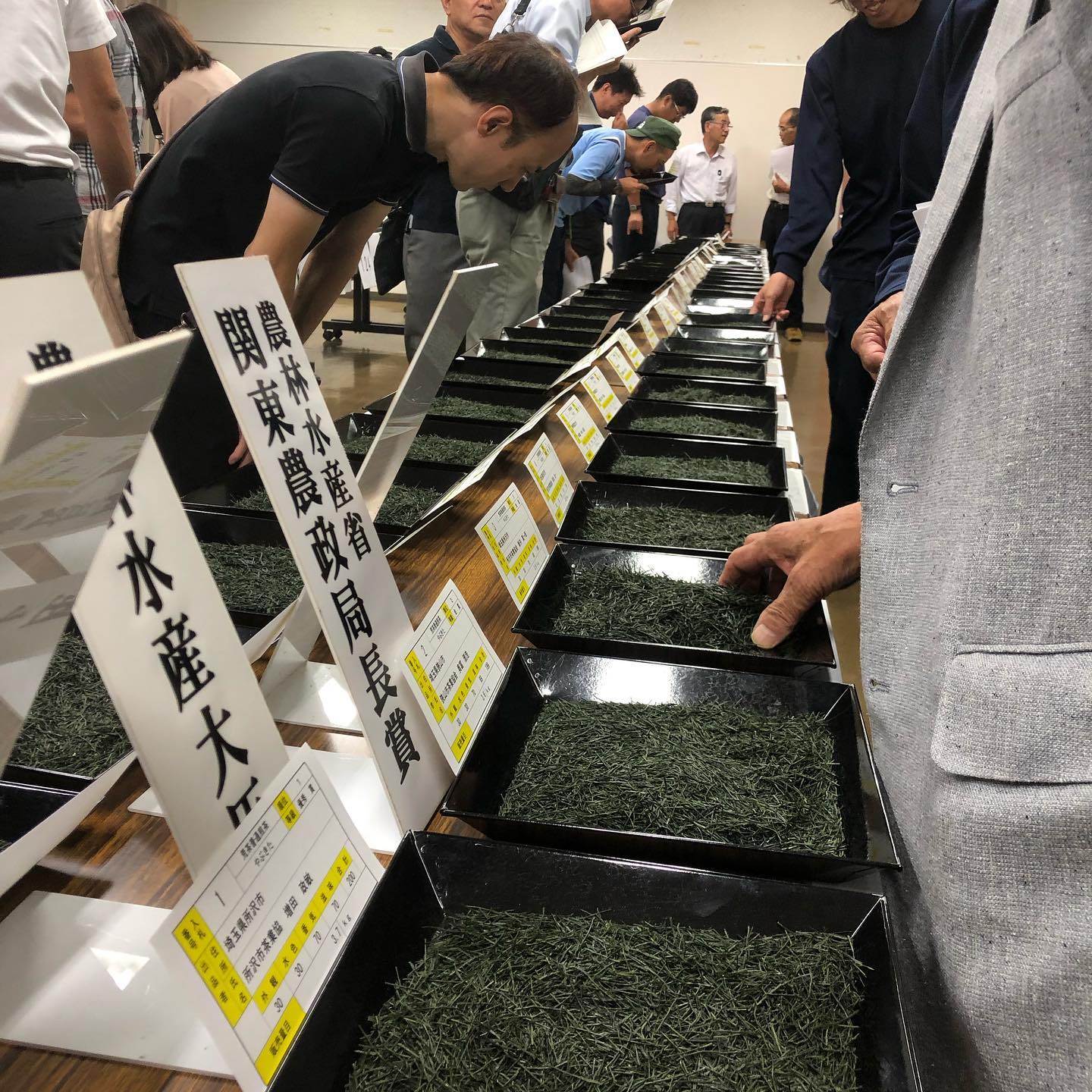日本国内だけでなく、世界中でお茶の賞(そしてより一般的な食品の賞)が数多く開催されていますが、Yunomi.lifeで「お茶のコンクール」と呼ぶ場合、それは日本各地で開催される茶農家(ただし、応募作品が自社の茶畑であれば、「農家」には農家協同組合や工場も含まれます)のみが参加できる茶のコンクールを指します。これらのコンクールは市、都道府県、または複数の都道府県からなる地域で開催される場合があり、全国レベルのコンクールも1つあります。大規模なコンクールへの応募には、小規模で地域的なコンクールからの推薦が必要となる場合が多くあります。
以下のカテゴリーの茶葉は10kg単位で(一部の茶葉は4kg単位でも)提出できます。提出バッチは、たとえ生産バッチが10kg以上の場合であっても、その特定のバッチのみとみなされます。農家は、1回または複数のコンテストのために、そのバッチを栽培・収穫し、乾燥葉への加工や完成茶葉への精製を外部の業者に依頼することもあります。農家がこれらのバッチを丁寧に作り上げるため、私は「コンテストグレード」の茶葉と呼んでいます。
コンテストは農林水産省が主催し、応募作品数が一定数に達した場合(または200点満点に達した場合)、各部門の最高賞は大臣賞となります(注:この基準は確認が必要です)。さらに、その他の賞も授与され、応募作品は1等(世界の類似コンテストに合わせて金メダル賞と訳しています)、2等(銀メダル)、3等(銅メダル)に分類されます。これらの中で、順位は「席」によって分類されます。つまり、1等7席は基本的に7位、2等3席は銀メダルレベルで3位ですが、全体の順位は金メダル受賞者の数によって異なります。
これらのコンテストに出品されたロットは、入札権を持つ承認された卸売業者にオークションで売却されます。これはサイレントオークションであり、入札者はランキングを知ることができますが、有名な農家であれば、ランキングやポイントスコアが低くても、より高い入札額を獲得できる可能性があります。ただし、最高得点の農家よりも高い入札額を獲得することは稀です。
出典: http://shizuoka-cha.com/69ocha-fes/gaiyou/pdf/69_zenkoku_cha_hinpyokai_kaisai_youryo.pdf
|
お茶の種類
|
内部 | 外部の | |||||
| 抽出時間 | 香り | 液体の色 | 味(文字通り「栄養」) | 淹れた葉の色 | 外観 | 合計ポイント | |
| 通常の煎茶 | 5分 | 75 | 30 | 75 | 20 | 200 | |
| 深蒸し煎茶 | 4分 | 70 | 30 | 80 | 20 | 200 | |
| かぶせ茶 | 6分 | 70 | 30 | 70 | 30 | 200 | |
| 玉露 | 6分 | 65 | 30 | 65 | 40 | 200 | |
| 碾茶 | 5分 | 65 | 20 | 65 | 10 | 40 | 200 |
| 蒸し玉緑茶 | 5分 | 75 | 30 | 75 | 20 | 200 | |
| 釜焚き玉緑茶 | 5分 | 75 | 30 | 75 | 20 | 200 | |
辻木茶園の辻清治農家が、2022年全国茶業品評会で碾茶部門大臣賞を受賞。


